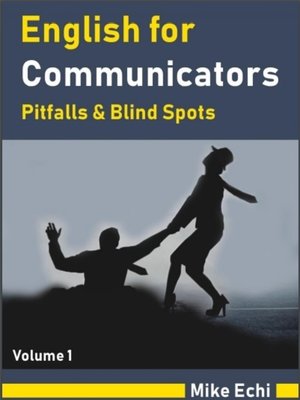Sign up to save your library
With an OverDrive account, you can save your favorite libraries for at-a-glance information about availability. Find out more about OverDrive accounts.
Find this title in Libby, the library reading app by OverDrive.



Search for a digital library with this title
Title found at these libraries:
| Library Name | Distance |
|---|---|
| Loading... |
English for Communicators is design essentially for those who English is a second language and learners who aspire to improve on the spoken and written words. The way we communicate our ideas and thoughts to be understood are guided by laid down rules starting with grammar and the use of words relating to over used words, tautology, clichés, ambiguity, homographs, homophones, homonyms, spelling, and punctuation.
Grammar is merely attempt to follow the rules in the use of words in order to avoid misunderstanding and ambiguities.
Over used words, often times makes one sounds redundant and uninspiring and they are mostly superlative.
Tautology is closely related to overused words-saying the same thing more than once in different ways.
Clichés is a derivative of the French verb clincher-to make metal casting of a stereotype. In English, it means an outworn, tired or what the purists prefer to call hackneyed word. Although one can hardly avoid using clichés in speech and writing, care must however be taken in order not to sound blunt, repetitive and stale.
Ambiguity is humorously tagged by one writer as a sworn enemy of accurate communication and betrayer of muddled thinking. Words should be arranged in such a way that it achieves, without a second glance, the meaning of that which you intend to pass to the reader or listener.
Homographs are words that are spelled the same but have different meaning.
Homophones are words which sound similar to one another but have different meanings.
Homonyms- each of two or more words having the same spelling and pronunciation but different meaning and origin.
Spelling- Illogical as spellings may be, the purists have made deliberate attempt to standardize the spellings of English words.
Punctuation marks are used to make plain, sense in a sentence, a vital tool for the broadcaster and on-air-personality. In scripting series of marks are inserted to mark off units of utterances from one form to another, either to show their grammatical relationship or give them some emphasis.








